| Title | Living Soil Filtration Project |
| Organization(s) | The Town of Okotoks in partnership with Source 2 Source Environmental Design, Bow River Basin Council, City of Calgary and the Universities of Calgary and Victoria |
| Water quality issues |
|
| Location/place | The Town of Okotoks – adjacent to the Environmental Education Centre |
| Sector | Municipal – 2018 winner in the water category of Federation of Canadian Municipalities’ (FCM) Sustainable Communities Awards |
| Funding sources | Watershed Restoration and Resilience Program (WRRP) and others |
| Timeframe | 2014 – present (ongoing) |
| Project cost | Initial funding from the Watershed Resiliency and Restoration Program (WRRP) was $125,000. With the addition of research partners and more stakeholders the funding at the site has reached approximately $1.2 million. |
The Town of Okotoks has an existing public works yard and wastewater treatment plant immediately adjacent to the Sheep River. In keeping with their long-standing leadership in sustainable design, the Town sought a riparian bioretention installation to serve as the main stormwater management facility for this site. Different soils and plants in the wetland (bioretention installation) capture and filter stormwater to increase the quality of runoff that is eventually released to the Sheep River. The installation, like natural wetlands, also acts as a buffer to reduce risks of flood and drought.
Conventional flood mitigation techniques often address a limited set of the consequences of a flood, whereas absorbent landscapes are designed to enhance basic processes at their source. The Source 2 Source (S2S) vision is to utilize the hydrological functionality of plants and permeable soils to establish self-sustaining riparian systems that would beneficially alter site scale water cycling, and reduce the risks of flood and drought. Vegetated bio-retention features are capable of capturing, storing, and gradually releasing water, all of which cumulatively prevents rapid fluctuations in surface water and lessens frequency and severity of flood and drought occurrences. Correctly designed, such features also have many ancillary benefits such as nutrient and contaminant capture, biodiversity, and natural aesthetics.
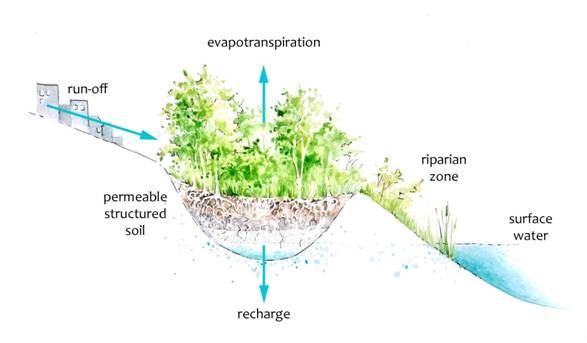
There was a need to manage stormwater runoff from a public works yard and wastewater treatment plant adjacent to the Sheep River, as well as interest from the research community to investigate processes and interactions in riparian bioretention. This initiative was created to address both water quality and quantity concerns as well as provide valuable information that can be used for future initiatives like this one.
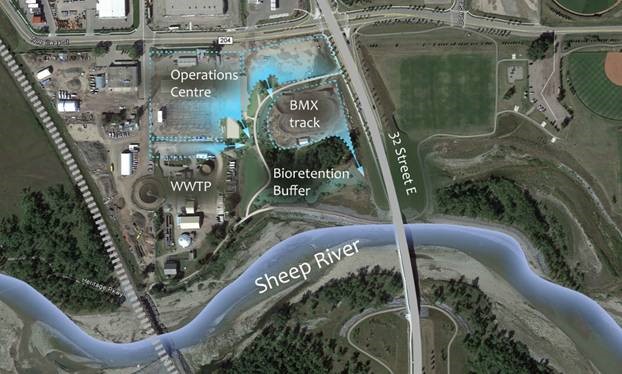
Figure 2. Extent of development and bioretention area. Image source: Bow River Basin Council
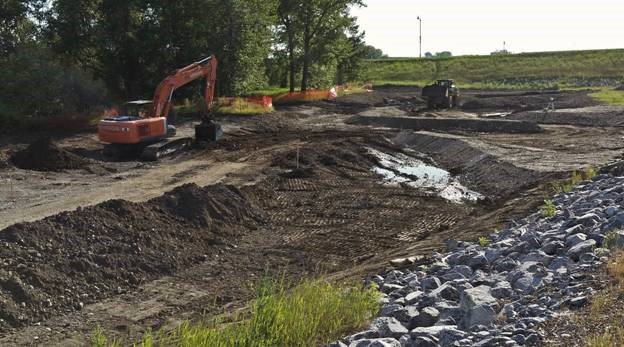
Figure 3. Construction of the main bioretention area – creating berms to structure run-off flow. Image source: Bow River Basin Council
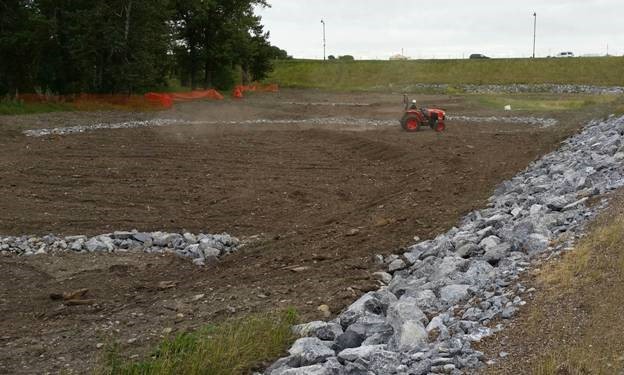
Figure 4. Seeding of the main bioretention area – hand application, followed by furrowing with light machinery. Image source: Bow River Basin Council
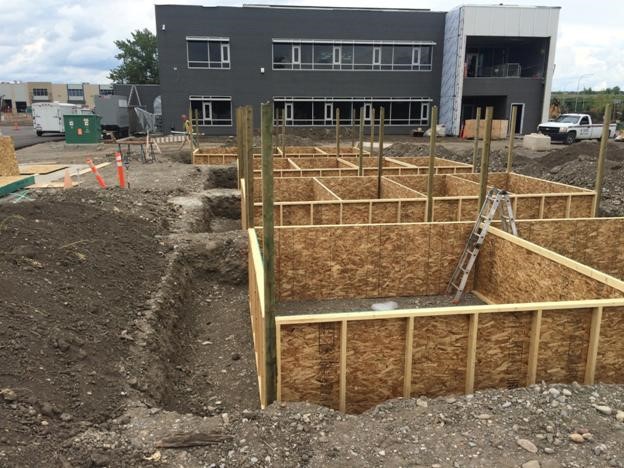
Figure 5. View of Test Beds under Construction (June 27, 2016). Image source: Bow River Basin Council
http://www.okotoks.ca/sustainability/our-corporate-initiatives/living-soils-filtration-project
https://okotoksonline.com/local/okotoks-home-to-largest-research-project-in-western-canada
Okotoks Operations Centre Bioretention
https://fcm.ca/home/awards/sustainable-communities-awards/2018-winners-case-studies/2018-water.htm
Share this Post:
We provide Canadian educational resources on water practices to promote conservation and sustainability. Our team crafts current and relevant content, while encouraging feedback and engagement.
The Canada WaterPortal is a registered charity, #807121876RR0001
We recognize and respect the sovereignty of the Indigenous Peoples and communities on whose land our work takes place.
© 2025 All Rights Reserved.